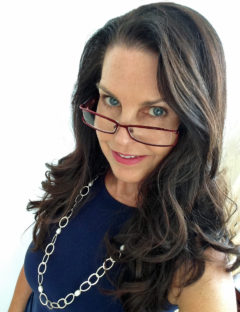![]() February 2010
February 2010
 Jazz musician Joel DiBartolo has kept high-profile company by playing for 18 years on the Johnny Carson show and by suffering from the same heart condition as Regis Philbin and David Letterman. Out of the blue in 1995, a heart attack struck DiBartolo in Prescott. They called it a ‘widow maker’ for its drastic and lasting effect. Except the jazz pro lived.
Jazz musician Joel DiBartolo has kept high-profile company by playing for 18 years on the Johnny Carson show and by suffering from the same heart condition as Regis Philbin and David Letterman. Out of the blue in 1995, a heart attack struck DiBartolo in Prescott. They called it a ‘widow maker’ for its drastic and lasting effect. Except the jazz pro lived.
No follow-up care was offered, and he resumed his musical life, teaching and performing. Thirteen years later, DiBartolo felt disturbingly short of breath and headed to Flagstaff Medical Center. A diagnostic exam revealed blockages so great he was admitted for surgery.
In years past, DiBartolo had sounded the bugle for funerals at Arlington Cemetery and said, “That was a life-changing experience.” Then, his own life was threatened, and he instigated change. “I have become a lighter and healthier eater. I pay more attention to myself now, and I am ready to live longer. I am extremely grateful.”
How it Works
Health is something we take for granted until it is compromised, yet our heart is a life or death matter. As the body’s pump for our lifeblood, a heart that beats strongly is essential and vital for longevity. Potential problems can include coronary disease, aneurysm, valve disease, arrhythmia or abnormal heartbeat as well as cardiomyopathy where the muscle is inflamed. Dr. James E. Carter with Mountain Heart said, “The Number One killer in the U.S. is cardiovascular disease and dealing with it in a comprehensive way is important. People need to understand that better. Good care helps decrease heart attack, stroke and control cholesterol.”
What to Eat
The role of our food can’t be denied or ignored. The Dietary Approach to Stop Hypertension (DASH) or its close cousin, the Mediterranean Diet, both emphasize a low sodium approach full of fruit and vegetables and utilize healthy oils, like olive or canola. Dr. Carter said, “Both diets have been shown to lower blood pressure and are as effective as medication.” With the popularity of cable food television and chefs as icons, paying attention to food and the creative ways to prepare it makes good nutrition tasty and trendy. Form a recipe exchange group or a supper club to create a social element to eating well and enjoy mealtimes.
How to Exercise
It’s easy to think that having a bad heart is a proper excuse for not exercising. Dr. Carter said, “Just the opposite is the case. Exercise lowers your risk whether you’ve had cardio problems or not. Exercise should be emphasized more than the newest drug or latest procedure. People don’t realize how easy it is to exercise every day. Walking is best – 30 minutes of brisk walking.”
Instead of thinking of exercise a chore, create an energetic way of living – walk your dog, park in the far lot, stay active with tasks. And strategize for success in your routine. Wear comfortable footwear and combine pleasure with moving by riding a stationary bicycle during your favorite show or walking with friends. You’ll sleep better, need less medication and fight depression by taking a dynamic role in your well-being.
Warning Signs
We need to be vigilant in heart health. At Flagstaff Medical Center, Dr. Eric Cohen is a practicing interventional cardiologist. He advised on the warning signs. “For chest discomfort with exertion, shortness of breath or out of the blue symptoms, you need to get yourself to the cardiologist or ER. Diagnostic testing can decide if this is cardiac or not.” He believes current sedentary lifestyles and rampant obesity, “lead to the perfect storm for heart disease.” Women face the same risk as men today, but their telltale trouble presents more subtly as weakness in the arms, indigestion and sleep disturbances with only a third experiencing acute chest pain. Lastly, watch for stroke symptoms that appear as numbness in the arm, face or leg, trouble seeing and dizziness. For these, seek medical help.
Repairs
Cardiology started off as an Internal Medicine discipline, but in 1977, Andreas Gruentzig invented angioplasty. Various catheter-based therapies have sprung from this advance. Dr. Cohen said, “The basic evolution from larger operations to smaller ones to blended procedures has opened the door to an explosion of new innovations. In the heart disease arena, there are two things going on: repair of artery blockages with more sophisticated stents so that repairs are nearly permanent and repairing injuries with catheter-based therapies.” The array of highly-developed and useful techniques offers choice for treating specific issues.
Overview
Care is comprehensive in nature. As Dr. Cohen said, “The bottom line is cardiovascular disease affects every artery of the body, from ones that feed the brain to ones that feed the belly and others that feed the legs.” And there are as many available therapies to help heal it. Overall, patients need to learn about their medical condition and make lifestyle changes to improve future health. The plan is to work with your health care team, eat right, lose weight, stay active, quit smoking, reduce stress physically and emotionally and manage your medications. Being heart-conscious and lifestyle smart can lead to a longer, healthier life. NAMLM
Gail G. Collins
